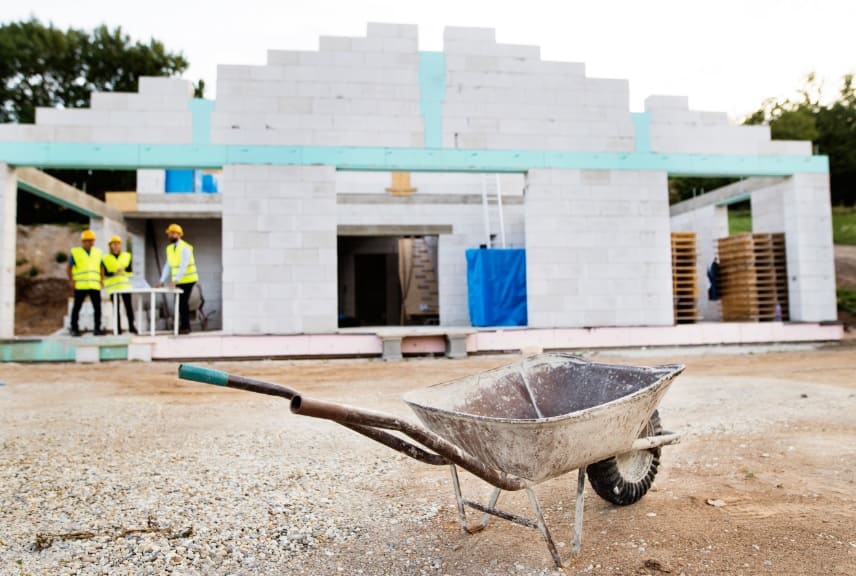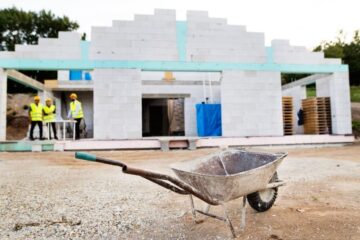
Hiring a Contractor in Trinidad and Tobago: What to Look For to Ensure a Successful Project
Whether you’re building a new home, renovating your kitchen, or tackling a major landscaping project, hiring the right contractor is essential to ensuring your vision comes to life. However, the process of selecting the right contractor in Trinidad and Tobago can often feel overwhelming. With so many options available, how do you know who to trust with your project?
In this guide, we’ll walk you through the key factors to look for when hiring a contractor in Trinidad and Tobago. From understanding the local construction landscape to checking credentials, we’ll ensure you have the tools you need to make a smart decision and find a contractor who can deliver high-quality results on time and within budget.
1. Why Hiring the Right Contractor is Crucial
The success of your construction or renovation project hinges largely on the contractor you choose. The wrong choice can lead to costly delays, poor-quality work, and frustration. On the other hand, the right contractor can make your project seamless, efficient, and even enjoyable.
Hiring a qualified contractor brings several advantages:
- Expertise and Experience: A professional contractor brings a wealth of knowledge about construction standards, building codes, and materials.
- Project Management: Contractors are skilled at managing teams, securing permits, and keeping projects on schedule.
- Quality Assurance: A licensed contractor ensures that the work meets local regulations and standards, protecting both your property and investment.
In Trinidad and Tobago, where the construction sector is rapidly growing, hiring the right contractor can also be the difference between completing your project smoothly and encountering costly setbacks.
2. What to Look for When Hiring a Contractor in Trinidad and Tobago
Now that you understand the importance of hiring the right contractor, let’s dive into the key aspects to consider when making your selection.
2.1. Licensing and Certification
One of the most important steps in hiring a contractor is ensuring they are properly licensed and certified. A licensed contractor in Trinidad and Tobago is not only legally permitted to carry out construction work but is also held accountable to national building codes and standards.
What to ask:
- Are you licensed by the Ministry of Planning and Development in Trinidad and Tobago?
- Can you provide proof of any industry-specific certifications?
Why it matters: A licensed contractor ensures that your project adheres to local laws and building codes, avoiding legal issues or the need for costly modifications down the line.
2.2. Reputation and Reviews
Word of mouth is a powerful tool when it comes to hiring a contractor. In Trinidad and Tobago, ask around for recommendations from friends, family, and neighbors. Online reviews and testimonials can also provide insight into a contractor’s reputation.
What to ask:
- Can you provide references from previous clients?
- Do you have any online reviews or ratings?
Why it matters: A contractor with a solid reputation is more likely to deliver high-quality work and maintain transparency throughout the project.
2.3. Experience with Your Type of Project
Not all contractors specialize in the same type of work. If you’re embarking on a specialized project, such as home remodeling, landscaping, or commercial construction, you’ll want to hire a contractor with experience in that specific area.
What to ask:
- Have you worked on similar projects before?
- Can you show me examples of past projects that are similar to mine?
Why it matters: Contractors with relevant experience are better equipped to handle unique challenges and provide you with creative, effective solutions.
2.4. Insurance and Bonding
Ensure that the contractor carries adequate insurance and bonding. Insurance protects you from potential liabilities, such as accidents or property damage, while bonding ensures that the contractor will complete the job according to the contract terms.
What to ask:
- Do you have liability insurance?
- Are you bonded?
Why it matters: Without insurance and bonding, you could be held responsible for damages or injuries that occur during the project, leaving you financially exposed.
2.5. Detailed Written Estimate and Contract
When hiring a contractor, always request a detailed, written estimate. This should break down the costs of materials, labor, permits, and other expenses. A clear contract will help manage expectations and avoid misunderstandings during the course of the project.
What to ask:
- Can you provide a written estimate?
- Will you outline the scope of work and project timeline in a formal contract?
Why it matters: A written estimate and contract protect both you and the contractor. They set clear expectations for costs, timelines, and deliverables.
2.6. Communication and Transparency
A successful project depends on open and transparent communication. Your contractor should keep you informed about progress, potential delays, and any issues that arise. They should be approachable and responsive to your inquiries throughout the process.
What to ask:
- How often will you provide updates on progress?
- Will I be able to contact you easily if I have concerns?
Why it matters: A contractor who values communication ensures that you’re always in the loop, reducing stress and avoiding surprises.
3. Frequently Asked Questions About Hiring Contractors in Trinidad and Tobago
3.1. How do I know if a contractor is trustworthy?
Check for reviews, ask for references, and verify their credentials. A trustworthy contractor should be transparent about their pricing and progress, and willing to provide guarantees on their work.
3.2. How do I ensure my project stays within budget?
Be clear about your budget from the outset, and make sure the contractor provides a detailed estimate. Set a payment schedule that aligns with project milestones, and keep track of any changes to the original plan that could increase costs.
3.3. How long will my project take to complete?
The timeline will depend on the size and complexity of the project. A good contractor should provide a realistic estimate and keep you informed of any delays.
3.4. What happens if there is a dispute during the project?
Ensure your contract includes a dispute resolution clause. This could involve mediation or arbitration in case of disagreements, which helps avoid legal complications.
Conclusion: Make Your Project a Success with the Right Contractor
Hiring the right contractor in Trinidad and Tobago is a crucial step in ensuring your construction or renovation project is completed successfully. By taking the time to research contractors, ask the right questions, and verify credentials, you can minimize risks and ensure a smooth, efficient process. Whether you’re building your dream home or renovating an existing space, a reliable contractor is key to turning your vision into reality.
By following the tips outlined in this guide, you’ll be well on your way to hiring a contractor who can meet your needs, stay within budget, and deliver exceptional results. Don’t settle for less—choose a contractor who will deliver excellence every step of the way.













